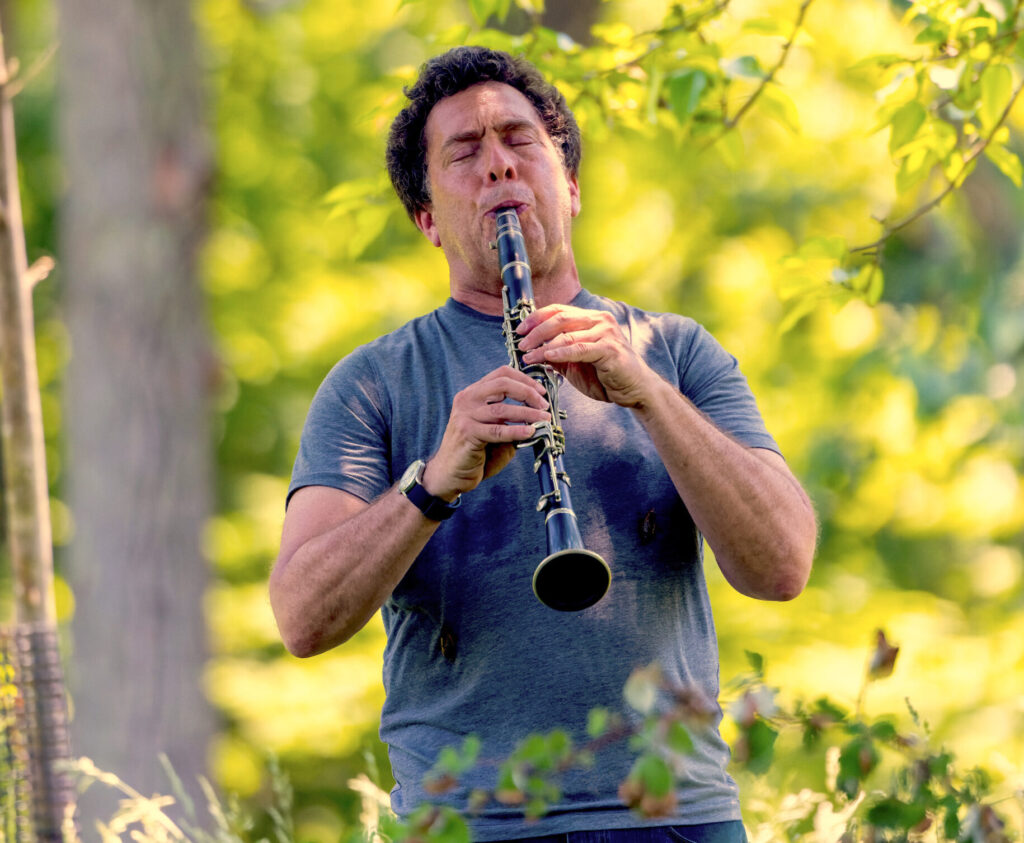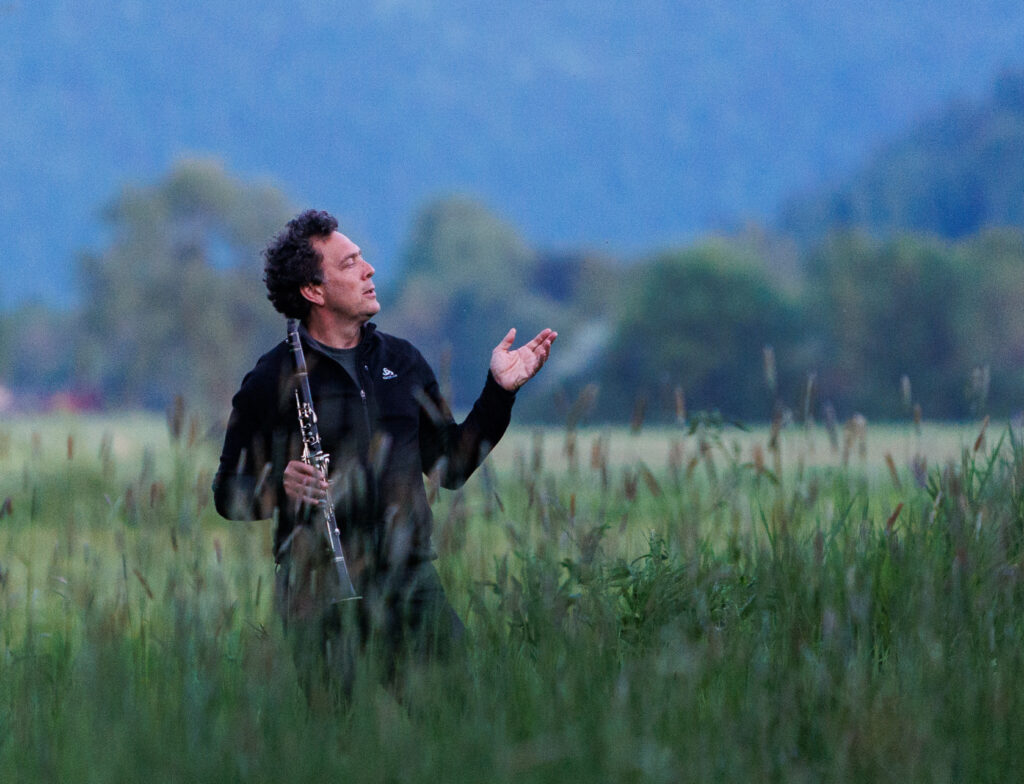Making Music with the More-Than-Human World: A Conversation with David Rothenberg
Bioneers | Published: June 2, 2025 Nature, Culture and Spirit Video
The natural world is alive with sound—birdsong, whale calls, insect rhythms, the quiet pulses of water and wind. These sonic landscapes aren’t just background noise; they’re rich, expressive languages of life. For those who choose to listen, they offer not only beauty, but insight into the deep interconnections that bind all beings.

David Rothenberg, a musician, composer, author, naturalist, philosopher, and independent publisher, has been a unique and fascinating explorer of humanity’s connections to the natural world for more than four decades, widely recognized, among other accomplishments, as a groundbreaking figure in “the joys and mysteries of interspecies music-making.”
He has released some 40 albums under his own name and collaborated with many prominent musicians on countless projects, including such luminaries as Paul Winter, Pauline Oliveros, Marilyn Crispell, Paul McCandless, Glen Moore, Scanner, DJ Spooky, and Jaron Lanier, to name only a few. One of his unique forms of experimentation in his extensive travels over the decades has been not only his recordings of bird and whale and other animal songs but his highly original attempts to engage with other species in musical exchanges, quite a few of which have been captured on film and/or discussed in his many books. Someone recently said of him: “He’s played with everyone from Peter Gabriel to Pauline Oliveros, Suzanne Vega, Scanner, cicadas, humpbacks, frogs, Estonian pond organisms, et al.”
Rothenberg is the author or editor of some 20 books, several of which are accompanied by audio or audio-visual components. His works in print include:
- Survival of the Beautiful: Art, Science and Evolution
- Whale Music: Thousand Mile Songs in a Sea of Sound
- Bug Music: How Insects Gave Us Rhythm and Noise
- Nightingales in Berlin (which was also made into a beautiful film)
- Why Birds Sing (which also inspired a feature-length BBC documentary)
- Wisdom in the Open Air
- The World and the Wild
- Invisible Mountains
- And, most recently, Secret Sounds of Ponds, a detailing of his attempts to capture and share hidden, normally inaudible underwater soundscapes (a couple of those experiments with hydrophones can be seen in these clips:
Rothenberg, who has been a professor of philosophy for nearly 35 years, also, among his other contributions, helped make better known in the English-speaking world the work of the important Norwegian philosopher and eco-activist Arne Næss, who coined the term “deep ecology.”

You can find more comprehensive information about David Rothenberg’s extensive and multi-faceted life and work on his website.
In this recent interview, Bioneers senior producer J.P. Harpignies invited Rothenberg to recount some of the key episodes in his career trajectory, unpack some of his guiding ideals and passions, and regale us with some anecdotes from an extremely full life which has included some surprising encounters with quite a few renowned cultural and scientific figures.